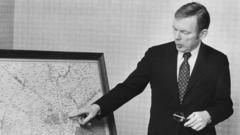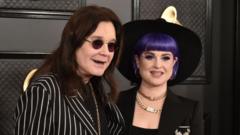Charles Dolan, founder of HBO and Cablevision, leaves a lasting legacy in the media industry.
Charles Dolan, Pioneer of Cable TV and HBO, Passes Away at 98

Charles Dolan, Pioneer of Cable TV and HBO, Passes Away at 98
Celebrated billionaire who shaped New York's television landscape dies.
In a monumental loss for the media world, Charles Dolan, the billionaire mastermind behind HBO and Cablevision, has passed away at the age of 98. Dolan's career was marked by his groundbreaking contributions to cable television, especially in New York during the sixties and seventies.
Starting with his innovative Teleguide service, which provided special programming to hotels, Dolan capitalized on the rapid rise of cable television while rural areas were just beginning to embrace it. In 1964, he secured a pivotal agreement with New York City to wire several Manhattan buildings for cable, which laid the groundwork for modern television viewing in urban settings.
To capture viewer interest, Dolan acquired broadcasting rights for New York Knicks and Rangers playoff games, ultimately creating Home Box Office (HBO) to provide premium movie content. He later made a strategic move to sell his initial cable service alongside HBO, allowing him to reinvest in the creation of Cablevision, a company that would eventually deliver expansive television and internet services to homes across the northeastern United States.
In 2015, the Dolan family sold Cablevision for an impressive $18 billion to European telecommunications firm Altice, marking a significant moment in the family's media empire. By this time, Dolan’s son James had taken the reins, steering the company through a period of tumult, as the Dolans gained a reputation among New Yorkers due to ongoing frustrations related to the Knicks’ performance and controversies over programming rights that threatened major televised events like the Academy Awards and World Series.
At the time of his passing, Dolan's net worth was estimated at $5.4 billion by Forbes, affirming his status as a key figure in the evolution of modern television. His legacy, though marked by complexities, will undoubtedly shape the media industry for years to come.
Starting with his innovative Teleguide service, which provided special programming to hotels, Dolan capitalized on the rapid rise of cable television while rural areas were just beginning to embrace it. In 1964, he secured a pivotal agreement with New York City to wire several Manhattan buildings for cable, which laid the groundwork for modern television viewing in urban settings.
To capture viewer interest, Dolan acquired broadcasting rights for New York Knicks and Rangers playoff games, ultimately creating Home Box Office (HBO) to provide premium movie content. He later made a strategic move to sell his initial cable service alongside HBO, allowing him to reinvest in the creation of Cablevision, a company that would eventually deliver expansive television and internet services to homes across the northeastern United States.
In 2015, the Dolan family sold Cablevision for an impressive $18 billion to European telecommunications firm Altice, marking a significant moment in the family's media empire. By this time, Dolan’s son James had taken the reins, steering the company through a period of tumult, as the Dolans gained a reputation among New Yorkers due to ongoing frustrations related to the Knicks’ performance and controversies over programming rights that threatened major televised events like the Academy Awards and World Series.
At the time of his passing, Dolan's net worth was estimated at $5.4 billion by Forbes, affirming his status as a key figure in the evolution of modern television. His legacy, though marked by complexities, will undoubtedly shape the media industry for years to come.




















